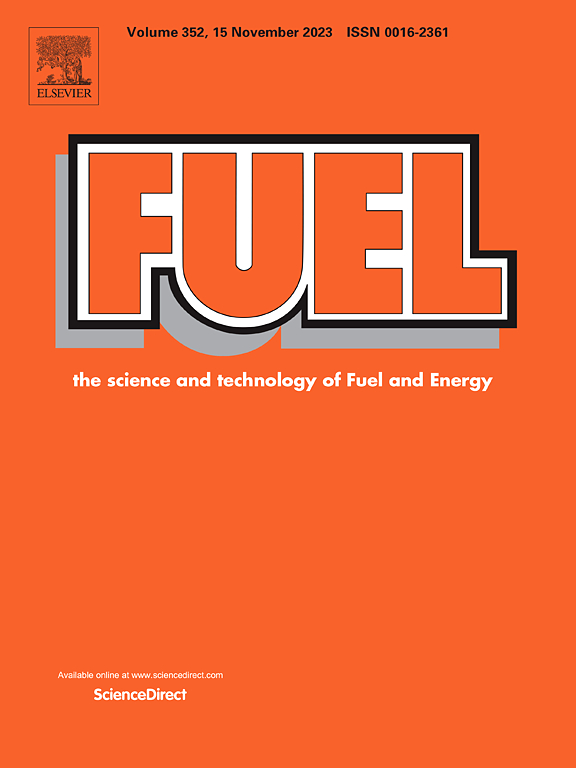A novel intelligent approach mixing optimally diesel and animal fat recycled biodiesel for fuel creation
IF 7.5
1区 工程技术
Q2 ENERGY & FUELS
引用次数: 0
Abstract
This paper proposes a novel AI-based approach to finding efficient biodiesel mixtures, for fuel production from recycled animal fats. Animal fat wastes produce biodiesel with high-quality physicochemical properties and elevate the features of the new fuel that obtain enhanced oxidative stability and increased cetane number. An evolutionary computation approach based on genetic algorithms has been implemented to find feasible solutions corresponding to optimal mixtures between diesel and animal fat waste-based biodiesel. Evolutionary computation approaches are particularly capable of finding high-quality solutions to complex optimization problems. A special function for reckoning optimal fuel properties is defined in the paper, named the Total Evaluation Function Value (TMFV). This function blends the parameters of (a) fuel cost and (b) fuel density. The proposed approach gives to the researchers the ability to focus on the criterion that they believe is more important for fuel creation. Regarding the Genetic Algorithm, a new Operator Percentage Adjustment (OPA) mechanism for both Crossover and Mutation processes has been implemented for efficiency improvement in searching for optimal solutions. Especially in those cases where no improvement in the TMFV criterion value is observed, the mechanism is capable of amplifying the optimal solution detection process by increasing the number of solutions acquired through the mutation operation. Optimal fuel solutions have been produced experimentally at an Environmental Technology Laboratory, revealing that the new biodiesel fuel costs less than the common diesel (improvement ranges between 17.22% and 17.32% per experiment set), providing competitive fuel prices, while its consumption is expected to reduce pollutant emissions by having lower sulfur content. Note that this study succeeds in obtaining very small to zero deviations between computer-based experimental results and results acquired from the real fuel production process in the Laboratory (the latter results are available in the open information database in Mendeley.

一种新的智能方法混合柴油和动物脂肪再生生物柴油的燃料创造
本文提出了一种新的基于人工智能的方法来寻找高效的生物柴油混合物,用于从回收的动物脂肪中生产燃料。动物脂肪废弃物生产的生物柴油具有高质量的物理化学性能,提高了新燃料氧化稳定性和十六烷值的特性。提出了一种基于遗传算法的进化计算方法,以寻找柴油与动物脂肪废物生物柴油的最优混合物的可行解。进化计算方法特别能够为复杂的优化问题找到高质量的解决方案。本文定义了一种计算燃油最优性能的特殊函数,称为总评价函数值(TMFV)。该函数混合了(a)燃料成本和(b)燃料密度的参数。提出的方法使研究人员能够专注于他们认为对燃料产生更重要的标准。在遗传算法中,引入了一种新的算子百分比调整机制(OPA),用于交叉和变异过程,以提高搜索最优解的效率。特别是在TMFV判据值没有改善的情况下,该机制能够通过增加通过突变操作获得的解的数量来放大最优解的检测过程。环境技术实验室通过实验得出了最佳燃料解决方案,结果表明,新型生物柴油燃料的成本低于普通柴油(每组实验改善幅度在17.22%至17.32%之间),具有竞争力的燃料价格,同时其含硫量较低,有望减少污染物排放。请注意,本研究成功地获得了基于计算机的实验结果与实验室实际燃料生产过程中获得的结果之间非常小到零的偏差(后者的结果可在Mendeley的开放信息数据库中获得)。
本文章由计算机程序翻译,如有差异,请以英文原文为准。
求助全文
约1分钟内获得全文
求助全文
来源期刊

Fuel
工程技术-工程:化工
CiteScore
12.80
自引率
20.30%
发文量
3506
审稿时长
64 days
期刊介绍:
The exploration of energy sources remains a critical matter of study. For the past nine decades, fuel has consistently held the forefront in primary research efforts within the field of energy science. This area of investigation encompasses a wide range of subjects, with a particular emphasis on emerging concerns like environmental factors and pollution.
 求助内容:
求助内容: 应助结果提醒方式:
应助结果提醒方式:


